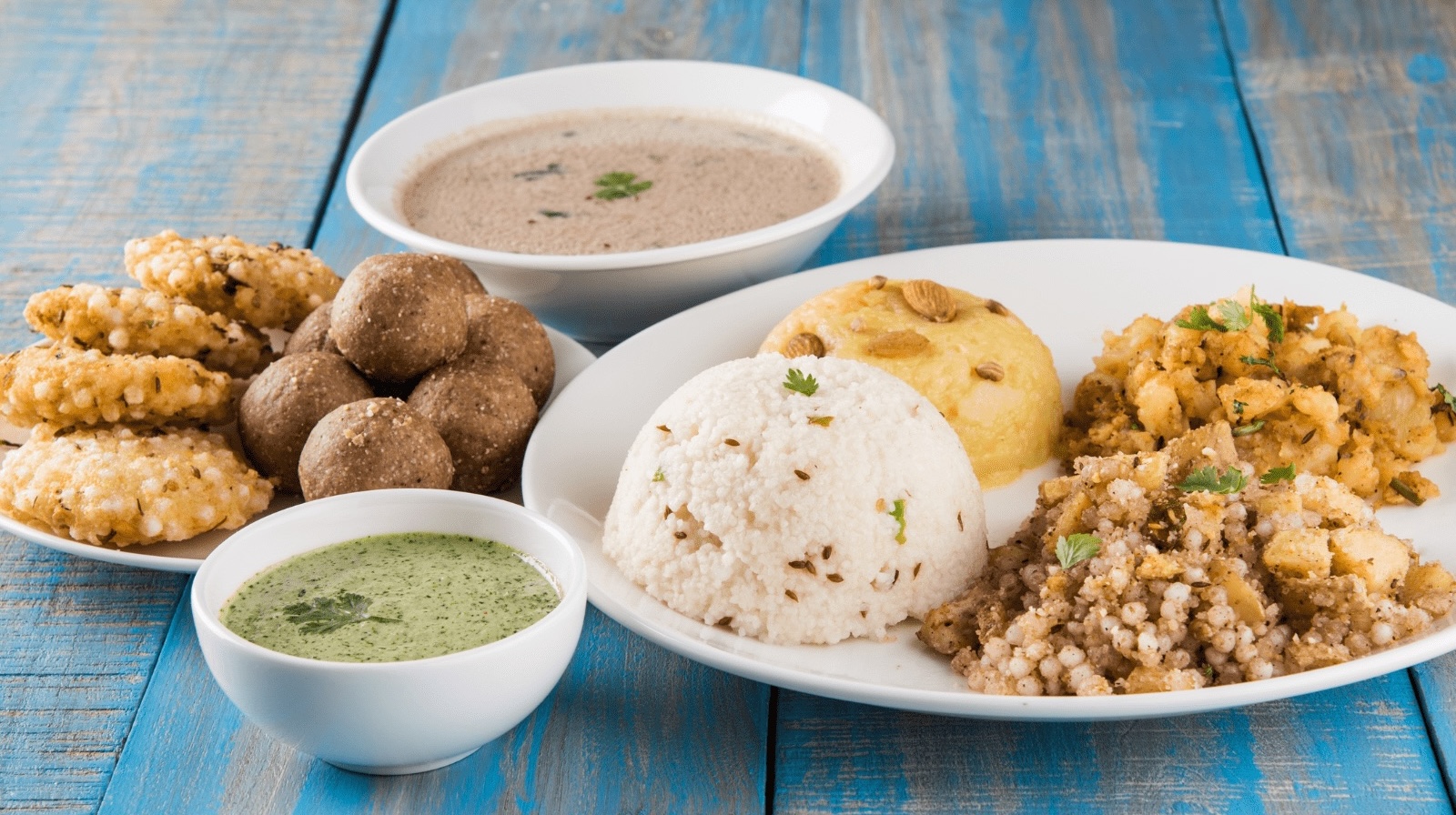Navratri Fasting: A Path to Detoxification and Wellness
Navratri is a time of devotion, celebration, and self-discipline, with fasting being an integral part of the festivities. While many observe fasting for religious reasons, it also serves as a natural way to cleanse the body, improve digestion, and promote overall well-being. At Serensa Health, we emphasize the importance of mindful nutrition and holistic health practices, making Navratri fasting an opportunity to rejuvenate your body while maintaining energy and strength.
The Health Benefits of Fasting
Fasting, when done correctly, offers several health benefits, including:
-
Detoxification: It allows the digestive system to rest, promoting toxin elimination and cleansing internal organs.
-
Improved Metabolism: A structured fasting plan enhances digestion, regulates insulin levels, and improves metabolic efficiency.
-
Weight Management: A balanced fasting approach helps regulate calorie intake, supports fat loss, and prevents unhealthy weight fluctuations.
-
Enhanced Mental Clarity: Fasting supports cognitive function, improves focus, and reduces mental fog.
-
Better Gut Health: Mindful fasting aids in maintaining gut flora balance, reducing bloating, inflammation, and digestive distress.
-
Boosted Immunity: Proper fasting strengthens the immune system by reducing oxidative stress and enhancing cell regeneration.
The 9-Day Fasting Plan for Optimal Health
A well-structured fasting plan ensures that you receive essential nutrients while supporting your body's natural cleansing process.
Days 1 to 3: Fruit-Based Detox
Start with a light and nourishing fruit diet to ease your body into fasting.
-
Include bananas, apples, watermelon, papaya, and grapes, which provide essential vitamins and antioxidants.
-
Consume hydrating fluids like lauki (bottle gourd) juice, amla (Indian gooseberry) juice, and tender coconut water to support hydration and electrolyte balance.
-
These foods provide natural sugars, fiber, and hydration, keeping energy levels stable and promoting gut health.
Days 4 to 6: Balanced Nutrition with Grains and Dairy
Gradually introduce nutrient-dense foods while keeping meals light.
-
Opt for samak rice (barnyard millet), kuttu (buckwheat) roti, and singhada (water chestnut) flour dishes. These are gluten-free and rich in essential amino acids.
-
Supplement meals with milk, buttermilk, and fresh fruit juices to support protein intake and digestive wellness.
-
These foods offer sustained energy, proteins, and essential minerals for strength, endurance, and muscle preservation.
Days 7 to 9: Fiber-Rich and Sustaining Meals
Include slightly heavier meals while maintaining digestive balance.
-
Enjoy lauki with curd, sweet potato chaat, and arbi (taro root) chaat. These meals are high in fiber and essential nutrients.
-
Continue consuming buttermilk, milk, and fruit juices to stay hydrated and nourished while maintaining electrolyte balance.
-
These meals provide fiber, healthy fats, and complex carbohydrates, ensuring optimal nourishment and preventing muscle loss during fasting.
Breaking the Fast the Right Way
The way you break your fast is crucial for maintaining its benefits. Avoid heavy meals immediately after fasting, as they can strain digestion and negate the positive effects.
-
Start with light, easily digestible foods like soups, vegetable stews, or fruit-based snacks to allow the digestive system to gradually adjust.
-
Avoid deep-fried or overly processed foods to prevent digestive distress and bloating.
-
Gradually reintroduce regular meals while keeping portions moderate to ensure continued metabolic benefits.
Precautions for Individuals with Health Conditions
If you have underlying health concerns such as diabetes, hypertension, or digestive disorders, consult a healthcare professional before starting a fast. A customized fasting plan can help you gain the benefits while ensuring medical safety.
-
Diabetics should monitor blood sugar levels and ensure proper carbohydrate intake to prevent hypoglycemia.
-
Hypertensive individuals should maintain hydration and avoid excess salt to prevent fluctuations in blood pressure.
-
Those with digestive disorders should focus on gut-friendly foods and avoid anything that may trigger acidity or bloating.
Fasting and Rehabilitation: A Holistic Approach
For individuals undergoing rehabilitation or mobility therapy, maintaining balanced nutrition is vital. Fasting should be adapted to individual needs, ensuring adequate protein, hydration, and essential nutrients for healing and recovery. At Serensa Health, our experts can guide you on safe fasting practices while supporting your recovery goals.
-
Muscle recovery: Fasting should include adequate protein sources to prevent muscle wasting.
-
Joint health: Hydration and essential nutrients like magnesium and potassium should be prioritized to prevent stiffness or weakness.
-
Energy levels: Proper balance of carbohydrates and fats is necessary to sustain energy, especially for those in physiotherapy or mobility rehabilitation.
Conclusion
Navratri fasting, when done mindfully, is a powerful tool for detoxification, better digestion, and enhanced well-being. By following a structured plan and making informed food choices, you can experience the benefits without compromising your health. If you have specific health needs or are undergoing rehabilitation, consult the experts at Serensa Health for a personalized approach to fasting and holistic wellness.
Fasting is not just about abstaining from food—it’s about resetting your body, mind, and soul. Use this Navratri as an opportunity to embrace health, healing, and mindful nourishment.
Stay mindful, stay healthy!


